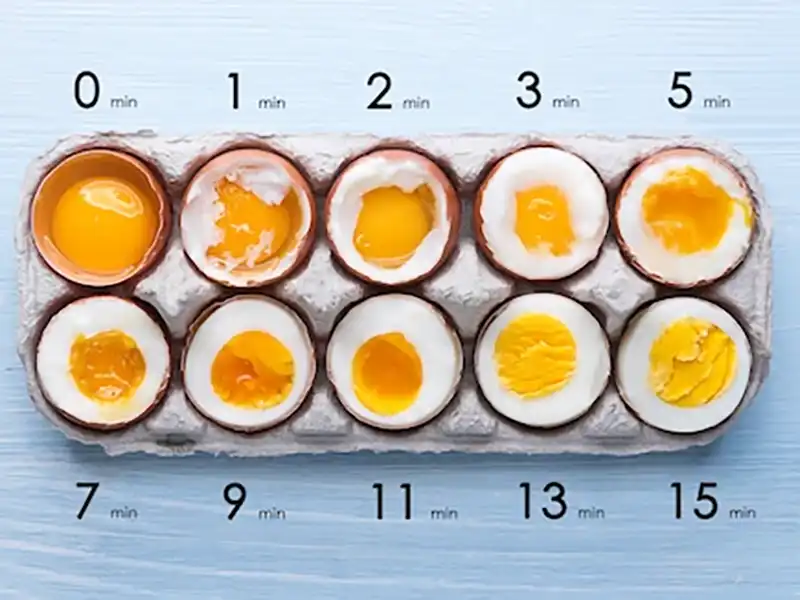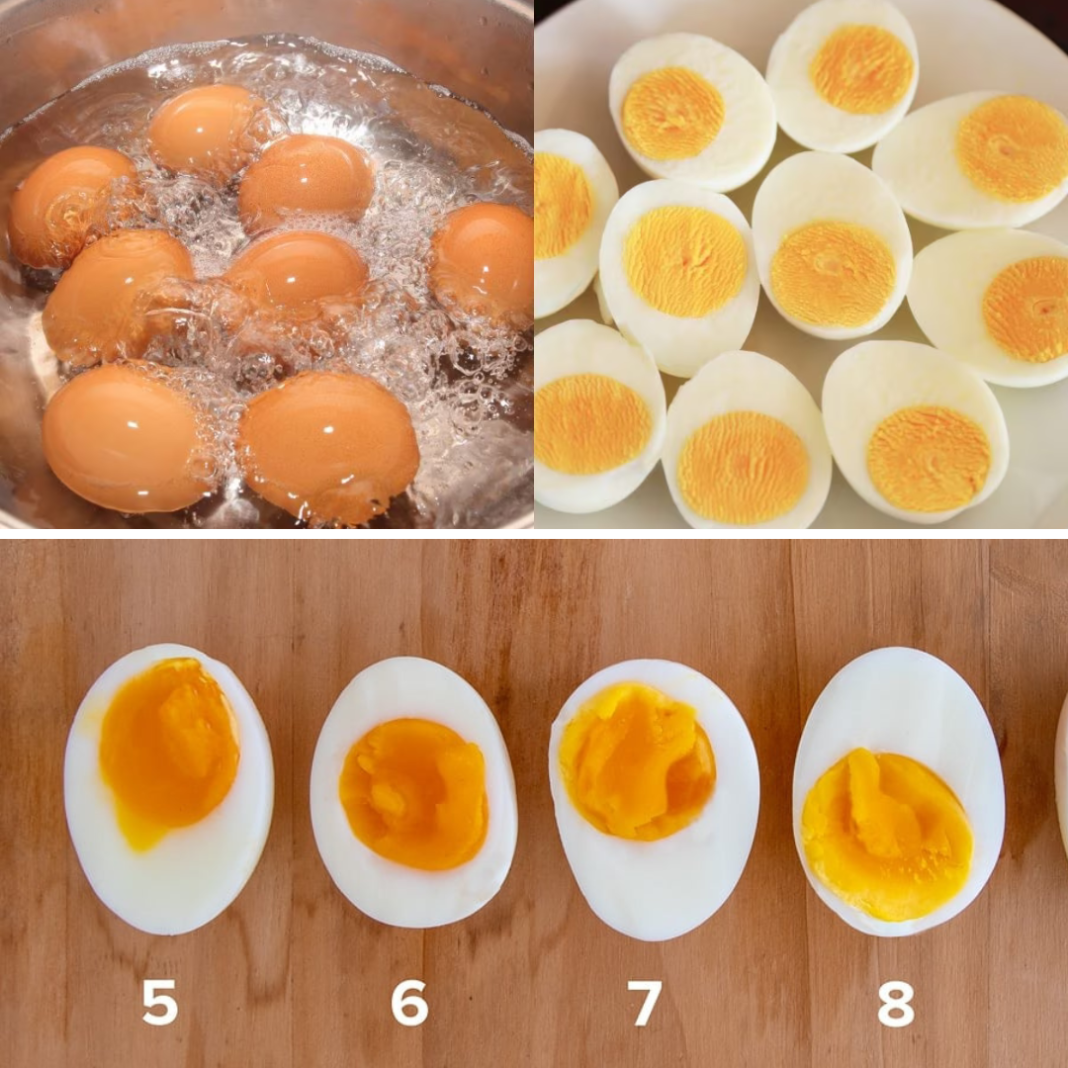Boiled eggs are a classic and versatile dish enjoyed by people all over the world. Whether you prefer them soft and runny or firm and fully cooked, mastering the art of boiling eggs is essential for every home cook. In this article, we will explore the various stages of boiled eggs, their benefits, and some tips to achieve the perfect boil. We will also showcase visually how different boiling times affect the appearance and texture of the eggs, from 1 to 15 minutes.

The Magic of Boiled Eggs
Boiling eggs is a simple and quick process, yet it yields a delicious and nutritious snack or ingredient for various dishes. Eggs are packed with essential nutrients such as protein, vitamins, and minerals, making them a healthy addition to any diet. When boiled, they become a versatile ingredient for salads, sandwiches, and even stand-alone snacks.
The Boiling Stages
- Soft-Boiled Eggs (1-4 minutes): Boiling an egg for 1 to 4 minutes results in a soft, runny yolk with a partially set egg white. Soft-boiled eggs are perfect for breakfast, served with toast or as a delicious topping for salads. The warm, creamy yolk is a delightful treat that many egg enthusiasts cherish.
- Medium-Soft Boiled Eggs (5-7 minutes): Boiling eggs for 5 to 7 minutes creates a slightly firmer yolk while still retaining some creaminess. The egg white will be fully set but not rubbery, making medium-soft boiled eggs ideal for dipping or as a nourishing addition to rice and noodle dishes.
- Medium Boiled Eggs (8-10 minutes): At this stage, the yolk transforms into a custardy texture while remaining slightly moist at the center. Medium boiled eggs are a great choice for deviled eggs or as an accompaniment to soups and stews.
- Medium-Hard Boiled Eggs (11-15 minutes): Boiling eggs for 11 to 15 minutes results in a fully cooked yolk with a crumbly texture. The egg white is solid, making it perfect for slicing and using in sandwiches or as a portable, protein-rich snack.
Tips for the Perfect Boiled Egg
- Choose Fresh Eggs: Fresher eggs tend to be easier to peel, and the yolks hold together better during boiling.
- Room Temperature Eggs: Let your eggs sit at room temperature for a few minutes before boiling. This helps prevent cracking during cooking.
- Gentle Boiling: Place the eggs in a single layer in a saucepan and cover them with cold water. Bring the water to a gentle boil and then reduce the heat to a simmer to avoid rapid temperature changes that might cause the eggs to crack.
- Timing is Crucial: For consistent results, use a timer to achieve the desired level of doneness.
- Ice Bath: After boiling, transfer the eggs to an ice bath for a few minutes. This helps stop the cooking process and makes peeling easier.
Boiled eggs are a timeless culinary delight, appreciated for their simplicity and versatility. From soft to hard-boiled, each stage offers a unique taste and texture that caters to diverse preferences. With a little practice and attention to timing, you can master the art of boiling eggs and add a flavorful, nutrient-rich ingredient to your culinary repertoire. So go ahead, experiment with various boiling times, and discover your perfect boiled egg!










